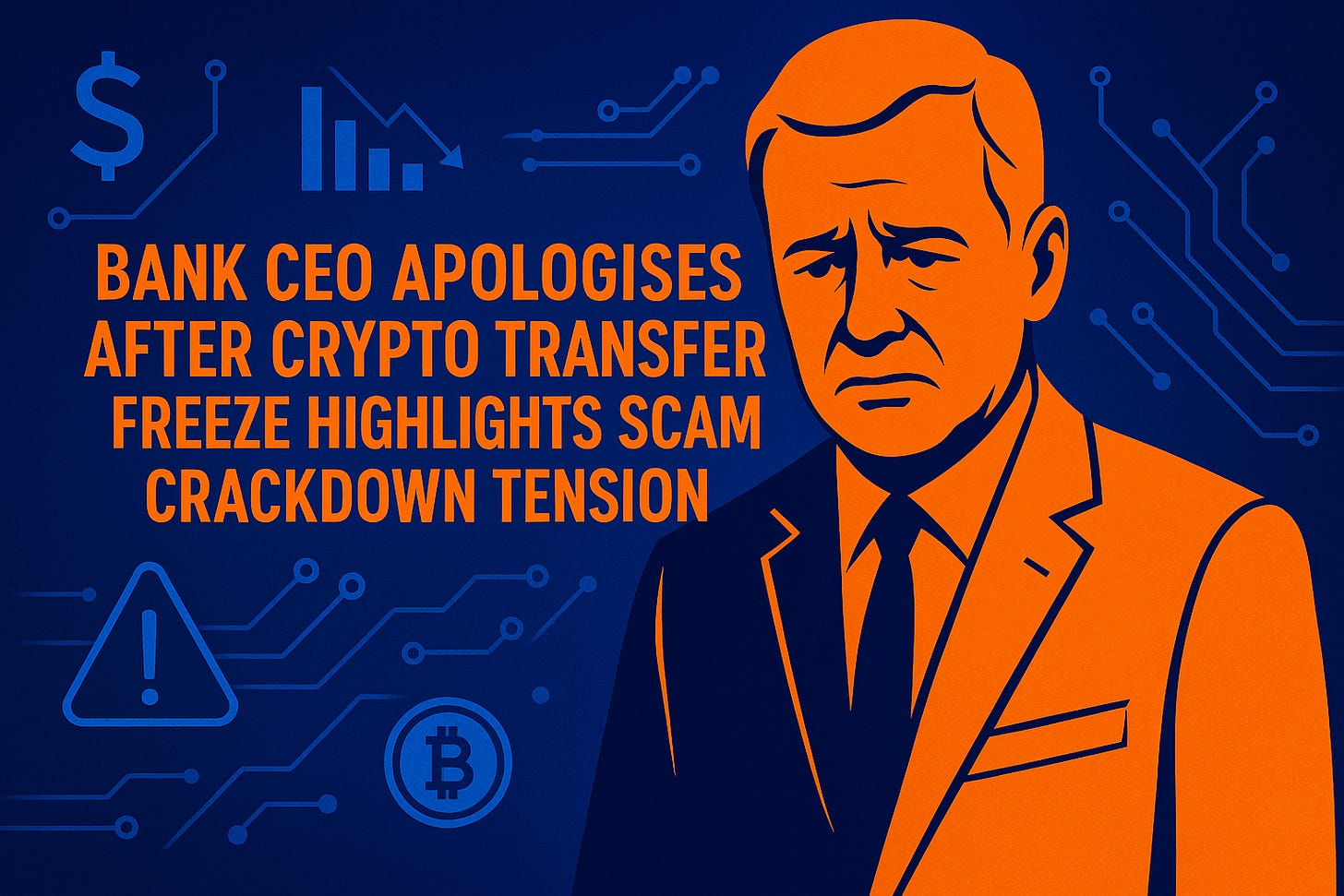Bank CEO Apologises After Crypto Transfer Freeze But His Explanation Still Doesn't Add Up
Westpac Freezes Tim's Account Over CoinSpot Transfer
Key Takeaways:
A Westpac customer, Tim, had his account frozen after the bank blocked his $30,000 transfer to CoinSpot, a popular Australian cryptocurrency exchange.
Westpac CEO apologised for the poor handling of the situation but defended the bank's anti-scam measures.
CoinSpot is one of Australia's largest and longest-running exchanges, registered with AUSTRAC and generally well-regarded.
Australian banks have tightened policies on cryptocurrency transfers, including blocking transfers, imposing monthly limits, and introducing payment delays and warnings.
These measures aim to protect customers from scams but also raise concerns about impacting legitimate users and the lack of transparency around 'high-risk' criteria.
Westpac Freezes Tim's Account Over CoinSpot Transfer
Navigating the world of cryptocurrency in Australia has hit a snag for some, caught between the desire to invest and banks' intensifying war on scams. A recent incident involving Westpac bank, a customer named Tim, and the popular Australian exchange CoinSpot brought this tension into the spotlight.
A Transfer Blocked, An Account Frozen
Earlier this year (2025), Westpac customer Tim attempted to transfer $30,000 from his account – into which he'd recently deposited $50,000 – to CoinSpot, intending to buy bitcoins. Westpac didn't just block the transfer; it froze Tim's entire account, leaving him without access to his funds for days.
The situation escalated during a recorded phone call with Westpac's risk management team, later aired on Sydney's 2GB radio. The bank representative questioned Tim's motives, stating, "I feel as though, so far, you are trying to tiptoe around the answers and simply tell me what you think I want to hear to have this pushed through as soon as possible". Tim expressed frustration, arguing the delay cost him potential market gains.
The public outcry led Westpac CEO Anthony Miller to issue a personal apology to Tim live on air, admitting the bank handled the situation poorly. However, Miller also defended the bank's underlying anti-scam measures, citing that one in five crypto-related transactions reported in the prior month involved fraud.
The incident was particularly puzzling given CoinSpot is one of Australia's largest and longest-running exchanges, registered with the financial intelligence agency AUSTRAC and generally well-regarded.
Tim ultimately closed his Westpac account.
The Bigger Picture: Banks Tighten the Reins
This incident didn't happen in isolation. Faced with billions lost to scams annually, Australia's major banks (including NAB, CBA, Westpac, and ANZ) have significantly tightened policies around cryptocurrency transfers since mid-2023.
These measures often include:
Blocking Transfers: Declining payments to exchanges internally classified as "high-risk," though these lists are rarely made public.
Monthly Limits: Imposing caps, such as CBA and NAB's $10,000 AUD monthly limit on transfers to crypto exchanges.
Payment Delays & Warnings: Introducing holds (like CBA's previous 24-hour hold) and enhanced warnings for certain transactions.
Banks argue these steps are necessary to protect customers, citing crypto's perceived role in facilitating scams due to transaction speed and difficulties in fund recovery. However, the lack of transparency around "high-risk" criteria and incidents like Tim's raise questions about whether these broad measures unfairly impact customers using legitimate, regulated platforms.
The challenge lies in striking a balance: effectively combating sophisticated scammers while ensuring Australians can still access legitimate financial services, including the growing digital asset market. As banks continue to refine their strategies under the national Scam Safe Accord and upcoming regulations, users and the crypto industry will be watching closely.


